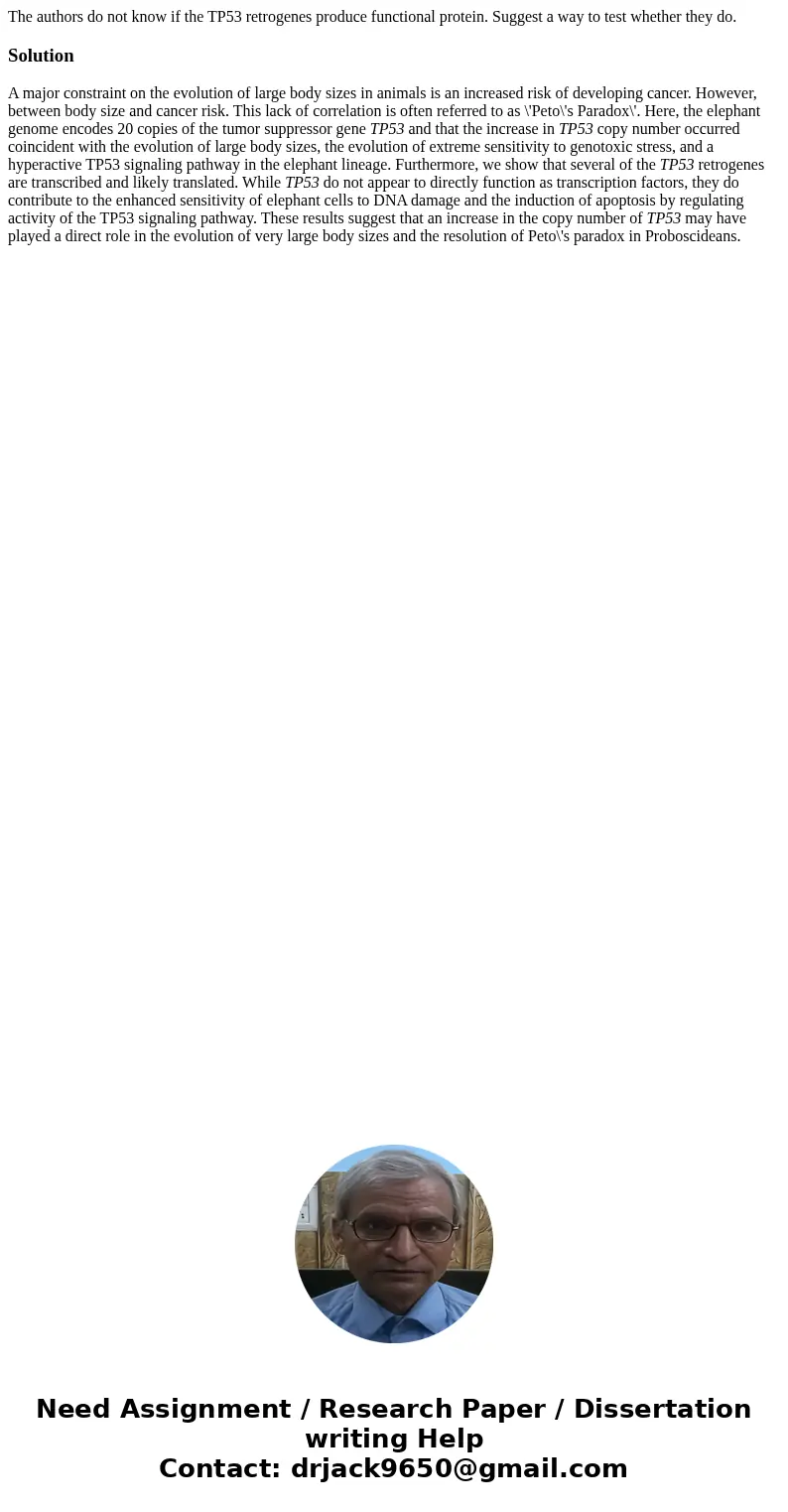The authors do not know if the TP53 retrogenes produce funct
Solution
A major constraint on the evolution of large body sizes in animals is an increased risk of developing cancer. However, between body size and cancer risk. This lack of correlation is often referred to as \'Peto\'s Paradox\'. Here, the elephant genome encodes 20 copies of the tumor suppressor gene TP53 and that the increase in TP53 copy number occurred coincident with the evolution of large body sizes, the evolution of extreme sensitivity to genotoxic stress, and a hyperactive TP53 signaling pathway in the elephant lineage. Furthermore, we show that several of the TP53 retrogenes are transcribed and likely translated. While TP53 do not appear to directly function as transcription factors, they do contribute to the enhanced sensitivity of elephant cells to DNA damage and the induction of apoptosis by regulating activity of the TP53 signaling pathway. These results suggest that an increase in the copy number of TP53 may have played a direct role in the evolution of very large body sizes and the resolution of Peto\'s paradox in Proboscideans.

 Homework Sourse
Homework Sourse